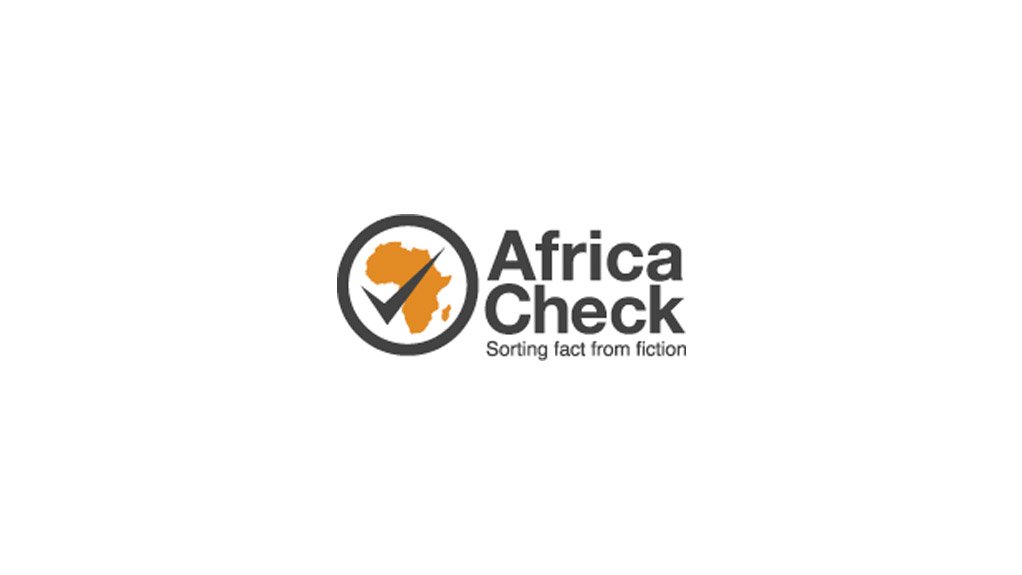US aid freezes under president Donald Trump have upended healthcare in dependent countries around the world.
The cuts have affected the President’s Emergency Plan for Aids Relief (Pepfar), which funds about 90% of Nigeria's HIV treatment, according to the National Agency for the Control of Aids (Naca).
Since its launch in 2003, Pepfar has provided US$7.8-billion for HIV care in Nigeria.
Amid concerns over the cuts, popular healthcare influencer Dr Chinonso Egemba, better known as Aproko Doctor, urged Nigeria to strengthen its healthcare system, citing statistics on the country’s HIV burden.
We examined two key claims he made to his 2.3-million followers.
In 2023, 39.9-million people worldwide had HIV, with 2-million cases in Nigeria, according to UNAids, a United Nations-led HIV/Aids initiative.
Globally, South Africa (with 7.7-million cases), India (2.5-million) and Mozambique (2.4-million) had more cases, placing Nigeria fourth.
"One of the main benefits of the UNAids data is that the results are comparable across countries because we support countries to use the same software that is developed by a scientifically rigorous group," Mary Mahy, the UNAids director for Data for Impact, told Africa Check.
In 2023, UNAids lacked HIV estimates for 29 countries, including Russia, China and the US.
Mahy told Africa Check that these countries were omitted for various reasons.
"The US is omitted for the most recent year because it takes them over 12 months to pull the data together from all the states and deduplicate information. Their estimates are always a year delayed.
“China is omitted because they prefer not to publish the information on their epidemic. Other countries are omitted because they had not completed the updating of their estimates before UNAids published the results, which occurs every year in July," she said.
The claim as made by Aproko Doctor is incorrect. But as some of his followers pointed out, the funding cuts could endanger Nigeria’s HIV/Aids programmes.
Experts agreed. “Nigeria has been donor-dependent on these programmes for too long. The current crisis is a wake-up call to rapidly scale up domestic financing of healthcare programmes,” Tanimola Akande, a public health professor at the University of Ilorin, north-central Nigeria, told Africa Check.
The World Health Organization says Nigeria is among eight countries at risk of running out of HIV medicine. The US also plans to exit the WHO.
Naca has announced plans to start producing HIV drugs and test kits this year.
Aproko Doctor posted a screenshot of a report with the headline: “Nigeria has 190 950 HIV/AIDS infections per year, the second highest rate in the world.”
The report was from the Nigeria office of the United Nations Children's Fund, or Unicef. But the screenshot also showed the data was from 2015.
“10-year-old data is obviously outdated in Nigeria. Recent survey data are available,” Akande told Africa Check. He said that while prevalence is most commonly used to measure a country's disease burden, tracking new cases can help assess interventions.
Prevalence refers to the share or percentage of a population with an illness or condition.
HIV numbers have changed significantly over time. For example, in 2015, 3-million people were living with HIV in Nigeria, according to Naca.
What does the most recent data show about new HIV infections in the country?
UNAids data estimates 75 000 new infections in Nigeria in 2023 – less than half of Aproko Doctor’s claim.
New infections were 74 000 in 2021, 86 000 in 2020, 100 000 in 2019, 130 000 in 2018 and 210 000 in 2017. Data for 2022 is missing.
According to the UNAids data, the last time Nigeria recorded up to 200 000 new HIV infections was in 1998.
Exaggerated statistics could cause panic, while underreporting could breed complacency, Theresa Amobi, associate professor of mass communication at the University of Lagos, told Africa Check.
“Both of these scenarios may negatively influence the adoption of recommended health practices. It could also make it more difficult for reliable information from government and health agencies to break through, especially in Nigeria, where public distrust of government and its agencies exists.
“Research has found that many people in Nigeria visit social media for health-related information, but often find conflicting or false information,” she said.
This report was written by Africa Check., a non-partisan fact-checking organisation. View the original piece on their website.











